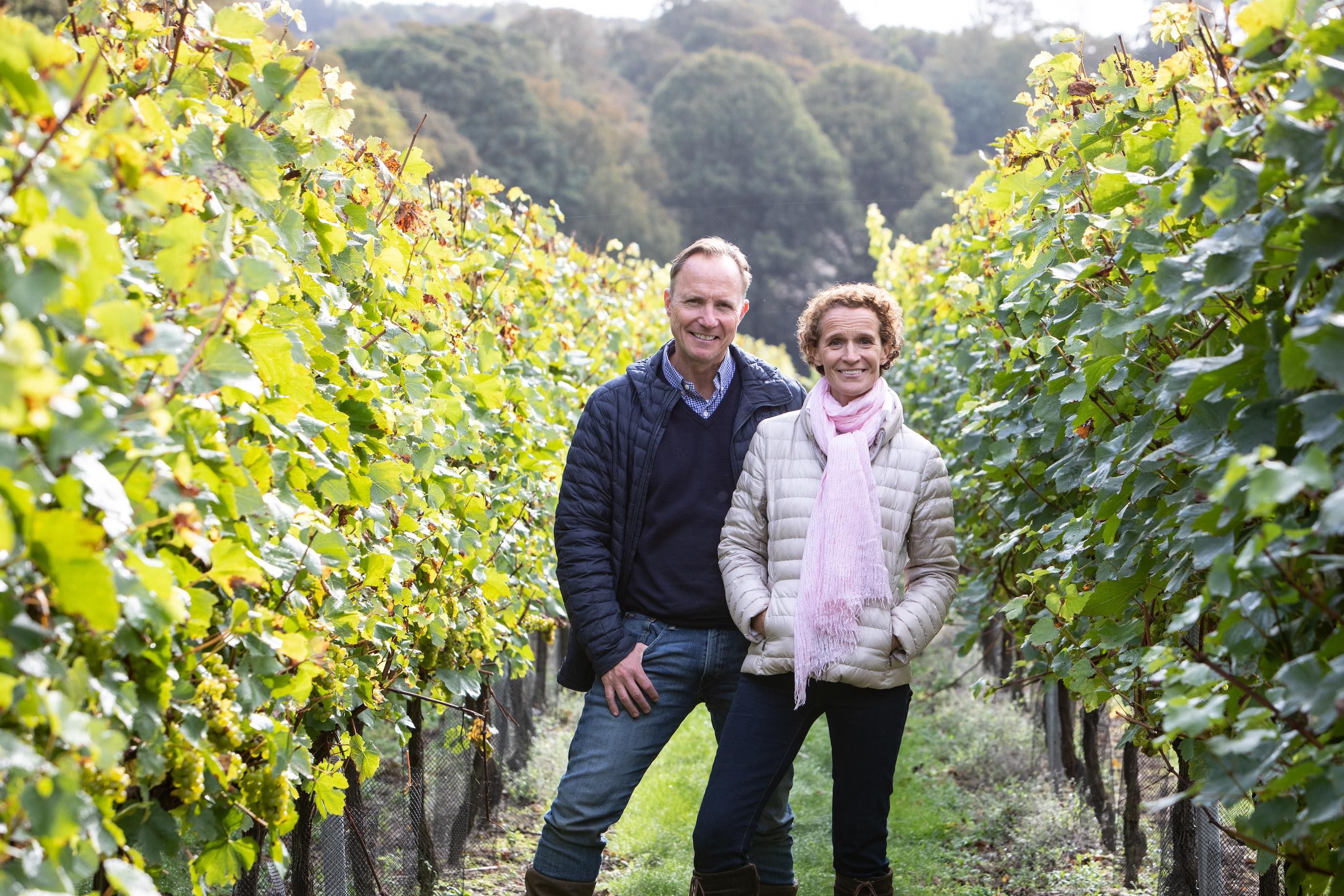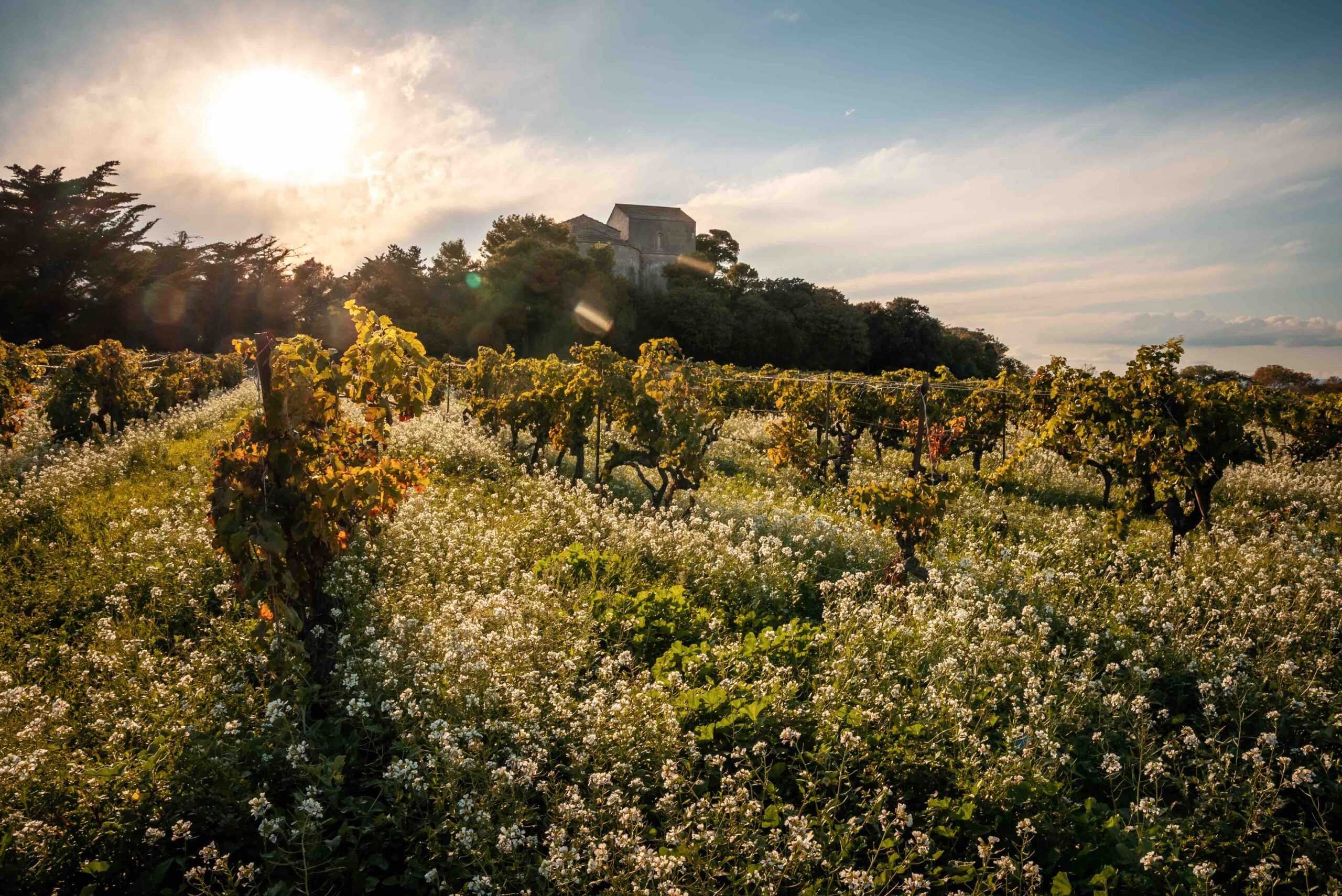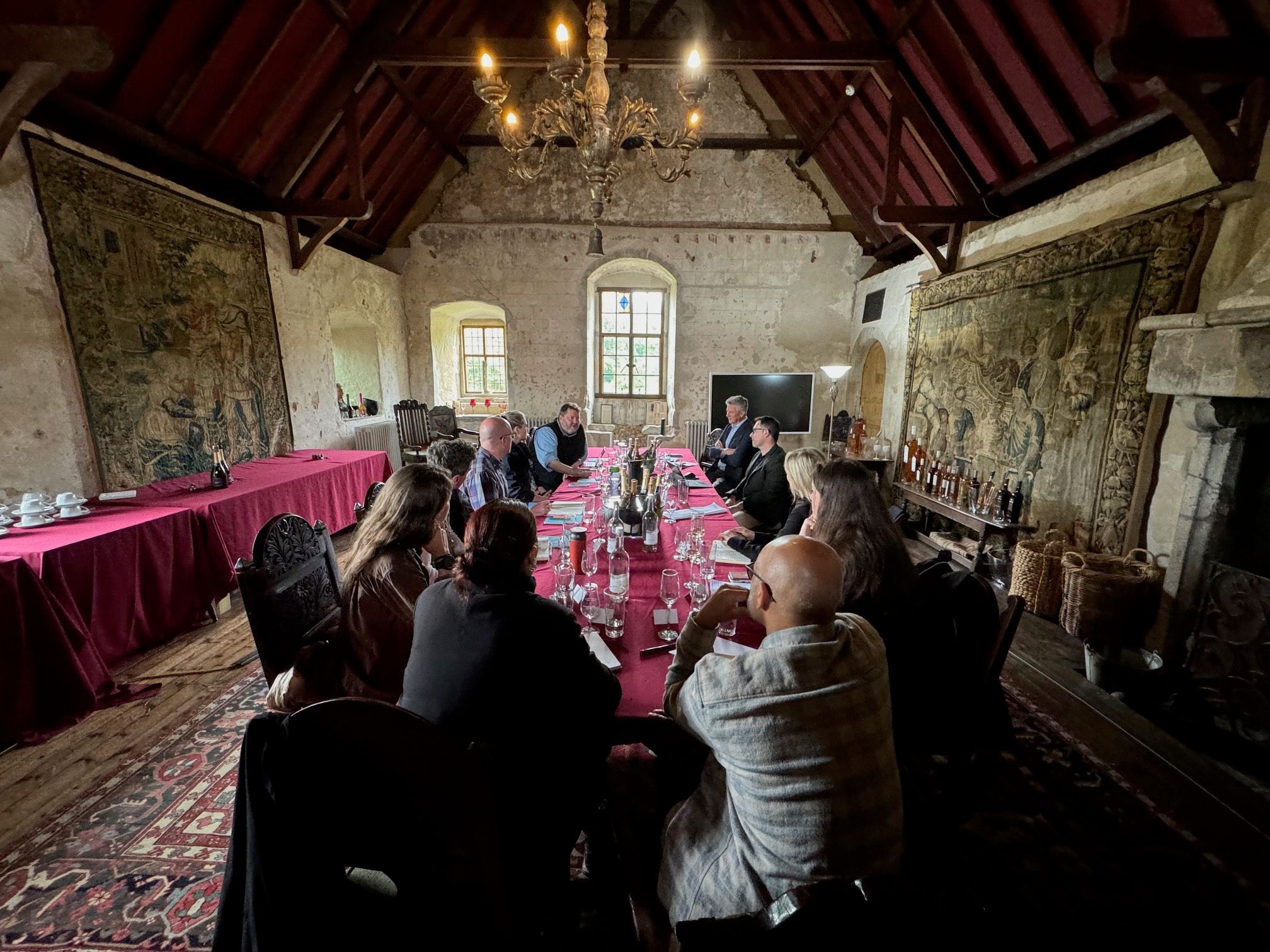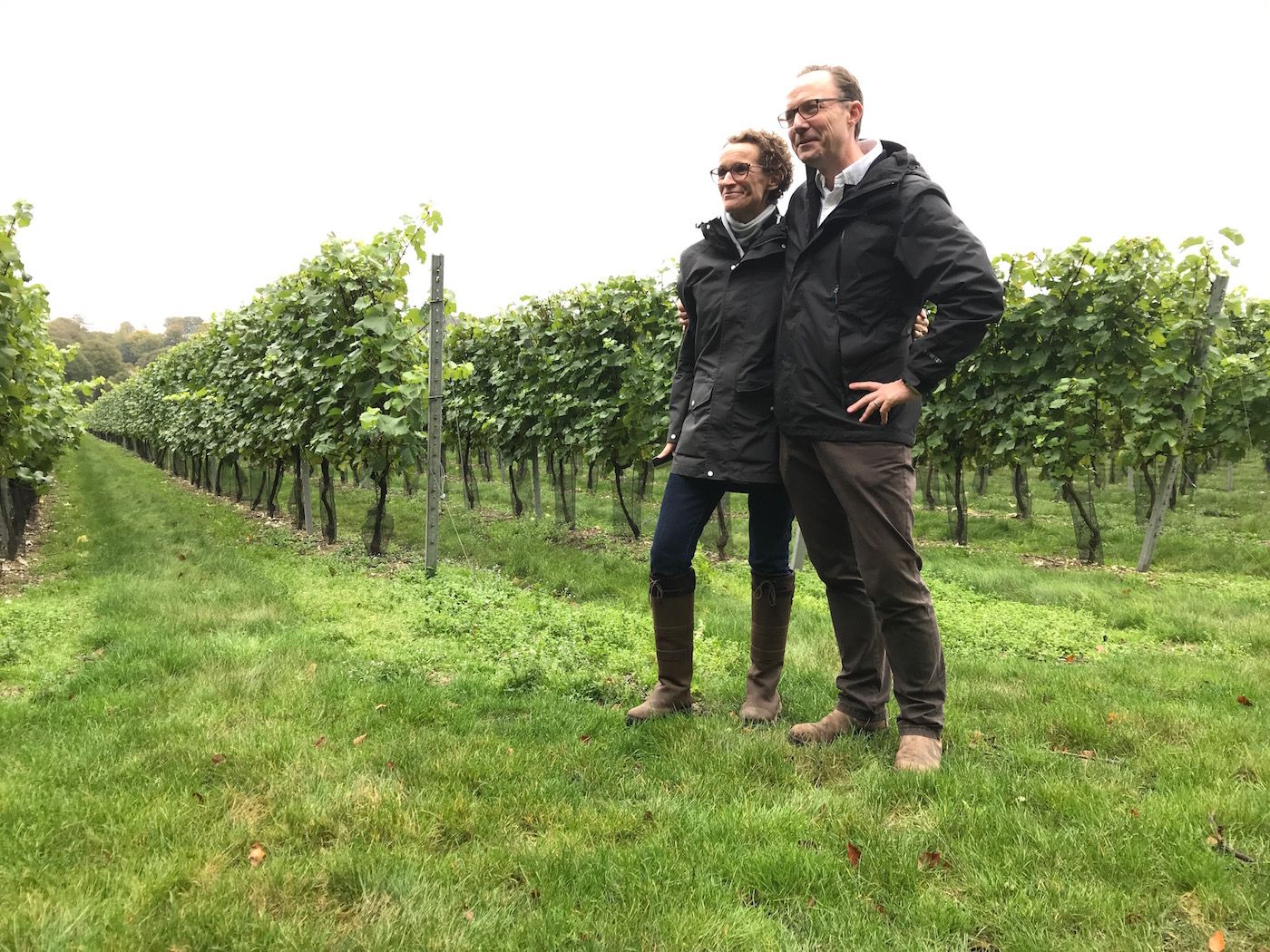There is a lot of talk of French producers looking to buy land in the UK and make wine - but you did the opposite and have had a long-standing French wine operation. Can you give us some background to Domaine Ste Rose and the wines you make there?
Twenty-two years ago, we cast aside our respective international careers in order to establish and run a high-quality, boutique, wine business in rural France. Our passion for wine and desire to invest in an, ‘emerging’ wine-producing area, rather than an area that was already well established, led us to the exciting and highly diverse French wine-producing region of Languedoc-Roussillon.
The dream had always been to produce quality wine and the property we found, the stunningly beautiful Domaine de Sainte Rose, provided us with the perfect raw materials. With 40 hectares of vineyards now in production and a winery onsite, we have built a thriving business, with customers around the world enjoying an eclectic range of top quality, award-winning wines created from 14 different grape varieties.
Why did you want to make wine in the Languedoc in particular?
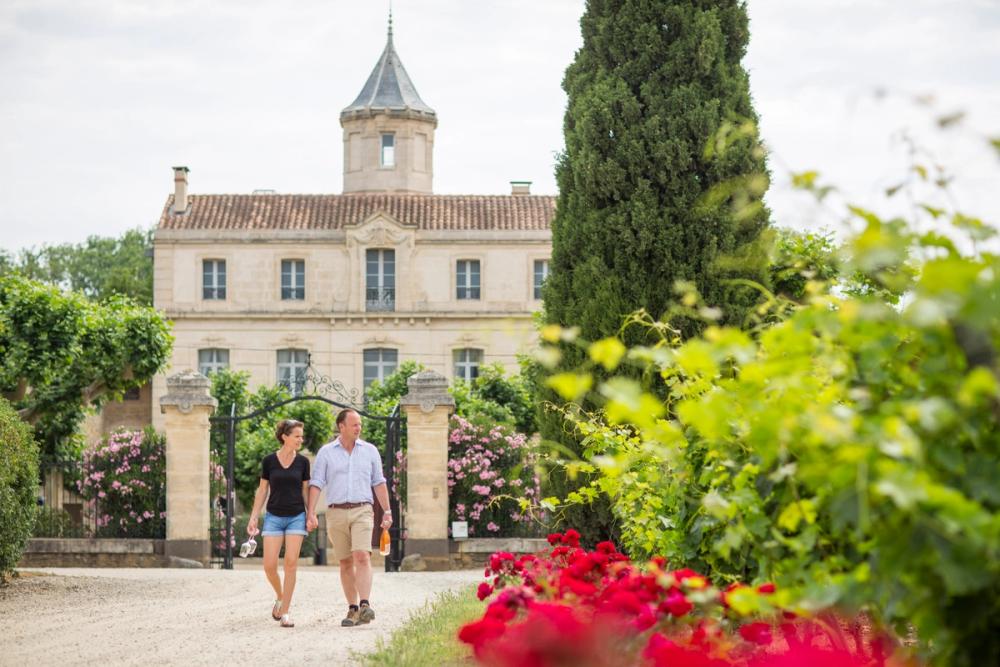
Charles and Ruth Simpson outside their Domaine Ste Rose property in the heart of the Languedoc. Picture Domaine Ste Rose
It was a spirit of adventure and a desire to be part of positive change that took us initially to France, with an aspiration to help transform the reputation of the Languedoc from a low quality, high volume wine producer to a high quality, low volume wine producer, a challenge that continues to this day. If there was anywhere in the Old World we could do a New World wine project it was the here, given the rise of the ‘Vin de Pays’ wines that aimed to compete with wines coming from Australia, New Zealand, South Africa and South America, rather than with other areas of France.
We have enormous respect for our Old-World terroir, however we employ New World techniques in the vineyard, as well as in the winery, to ensure we harvest top quality fruit and make clean wines with minimal intervention.
How have the styles and range of wines you make there developed over the years?
In the twenty-two years that we have been at Sainte Rose we have completely redesigned the winery, turning it into a state-of-the-art facility; we have gradually implemented major improvements in the vineyard, using environmentally sensitive farming techniques (accrediting them in the Haute Valeur Environnmentale sustainability scheme); and we have successfully introduced an eclectic range of wines into ten different markets around the world. We have experimented widely with the styles we create and with 14 varieties in the vineyard, we have plenty of scope.
We have made everything from orange wine to a late harvest, sweet Roussanne, but currently produce red, white and rosé still wines in a variety of different styles, as well as three Method Traditional sparkling wines.
What percentage of your French wines do you sell in France and how much is exported?
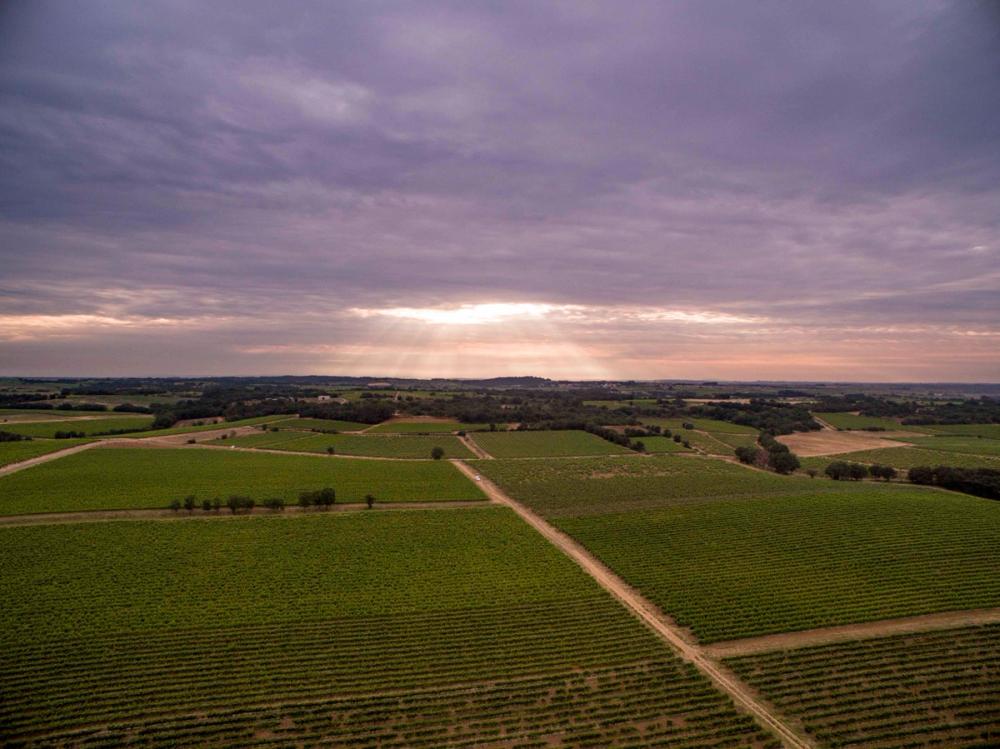
The Simpsons have been able to build strong exports for its Languedoc wines. Picture Thomas Alexander
All our wines are exported. As a couple of Brits coming in and doing things a little differently, we made a conscious decision not to sell our wines in the region, so that we would not be viewed as competitors by our friends and neighbours. The French market is very traditional, so we focussed our efforts in markets that would appreciate New World style wines.
We saw ourselves as rebels bucking the system and we were not alone, we used to be part of a group of producers called the ‘Outsiders Rocking the Languedoc Wine Scene’.
What are your biggest export markets and how are you growing them?
The UK has always been our biggest export market for our French wines, given we knew the various channels to market and because of its proximity to us. We also export to several other smaller European markets, the US and Canada. We have been able to grow these markets by being sensitive to their requirements and adapting the styles of our wine accordingly.
What lessons have you been able to apply to your English winemaking from the experiences you have had at Domaine Ste Rose?
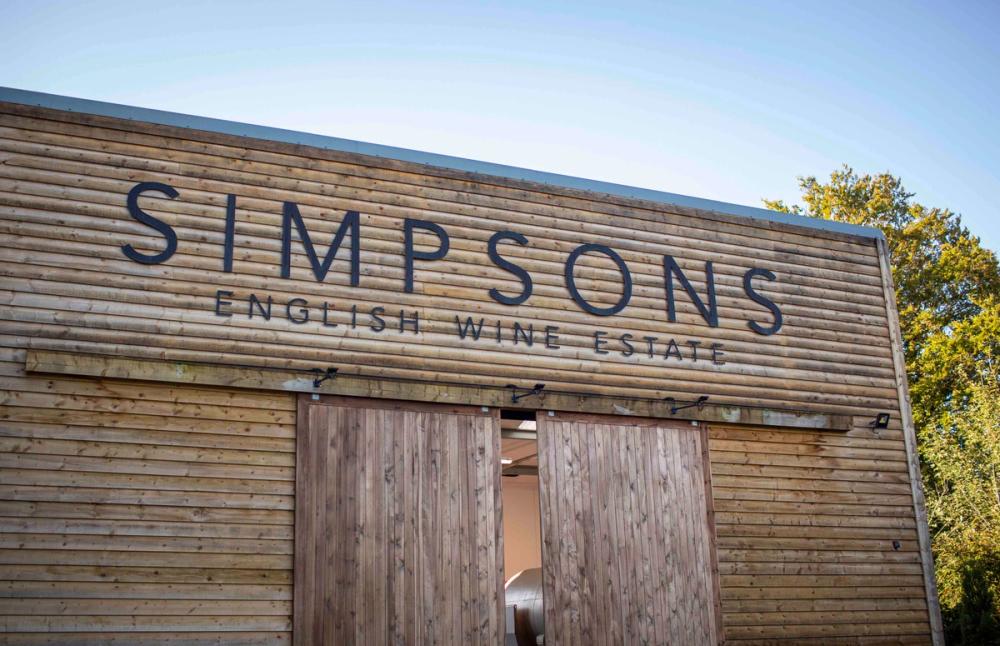
Simpsons English wine is regarded as one of the leading producers in the country. Picture Thomas Alexander.
The same desire to be part of an emerging and evolving area, that initially took us to the Languedoc, also brought us back to the UK. Our aspiration this time was to help drive the extraordinary development that has seen England grow from being a little known and insignificant wine producer, to the most exciting and dynamic wine producing area in the world.
Once again, we have built a reputation for doing things a little differently and the opportunity presented by still wine production allowed us to get our product and our name out into the marketplace earlier than if we had focussed entirely on Method Traditional sparkling wines.
As at Domaine de Sainte Rose, we want to surprise and delight people with our wines, using well known and less well-known varieties and styles. Our Derringstone Pinot Meunier is a point in case, breaking the mould as what was the first still, blanc de noirs to be created from this variety in the UK.
An important lesson we learned at Sainte Rose was not to be too fixed with your business plan and not to be afraid of adapting it based on the opportunities that present themselves. This keeps us nimble and allows us to pivot quickly and seamlessly.
An example of this was the Covid curve ball, when we were able to redirect English still wine that was destined for the UK on-trade market into the off-trade, based on historic relationships we had, through Sainte Rose. This meant we did not find ourselves sitting on stock that we were unable to sell through, due to the lockdown.
How similar is the winemaking challenge or is it very different?
Clearly the biggest winemaking challenge is the weather, which is hugely different from the hot, dry climate of the Languedoc. Our estate manager and hugely experienced viticulturalist keeps our feet firmly grounded as to the realities of growing grapes in England as opposed to our experience growing grapes in the south of France.
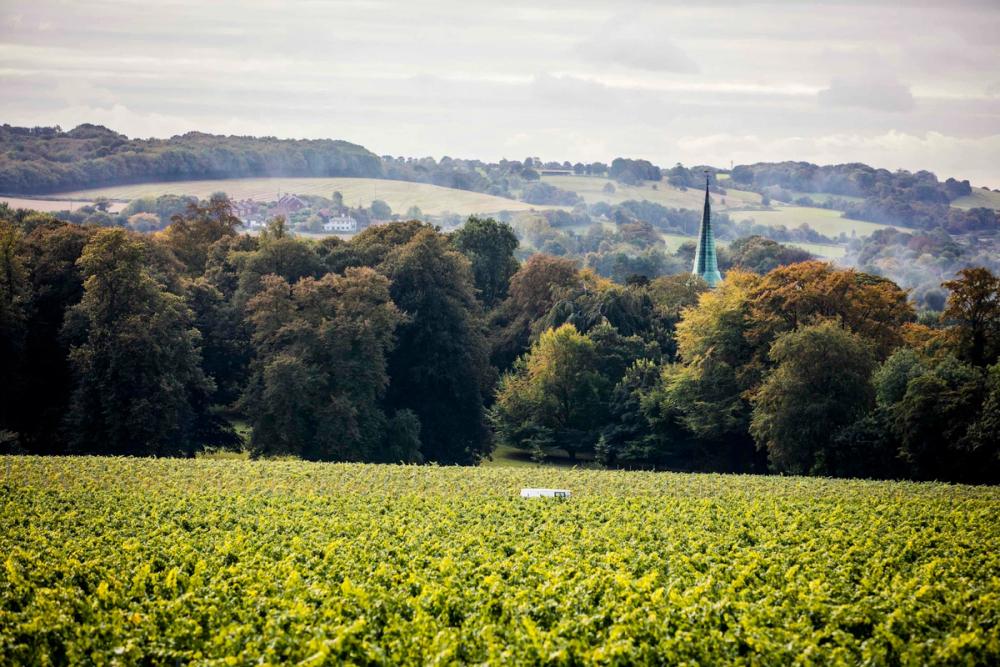
Site selection and south facing vines is key to making quality English wine say the Simpsons. Picture Thomas Alexander.
A lot of people talk about climate change as being the only reason that any wine can be successfully produced in the UK. We would have to qualify this and say that successful wine production is only possible on very specific sites within the UK and that regardless, we are still on the very fringes of viable viticulture.
The most important criteria for all successful wine production in the UK is site selection. The site must be south facing, preferably with decent slope, below 100m and preferably with protection from the wind. With all these factors working in your favour, to maximise the sunshine hours and heat accumulation during the day over the key harvest period, the hope is that your carefully selected clones pick up enough natural sugars and flavours to reach a potential alcohol and concentration worthy of making sparkling and if you are lucky, also still wines.
What have been the big changes you have made to the styles of wine you are making in England and why?
We have two Vaslin Bucher pneumatic grape presses that employ the Inertys oxygen-free pressing system, which uses nitrogen to protect the juice during the pressing process, thus preserving the delicate aromas and flavours of each grape variety. We think this has a marked effect on the flavour profiles of our wines, which reflect very pure and true varietal characteristics.
At Simpsons, our wine styles have evolved with our vineyards as they have become more established. What we realised in 2021 was that we needed to plant more still Burgundian Chardonnay clones, due to the success of our two still Chardonnay brands, particularly Gravel Castle Chardonnay in the Norwegian market.
We had realised that in order to produce sufficient still Chardonnay to meet demand and have sufficient Chardonnay base wine available for our sparklings, we would have to buy and plant more vines. This resulted in the purchase and plantation of our new vineyard site, Bonny Bush Hill, in 2022, which is entirely planted to still Burgundian Chardonnay clones.
What position do you think the English wine market currently is and what does it need to do more to strengthen the category?
The modern English wine industry may be small in comparison to other more established areas, however, it is being driven forward by a diverse range of quality-oriented producers, creating wines on a much smaller scale compared to other areas. They achieve this in spite of a raft of challenges, which range from a much lower feasible vine plantation density, a relatively underdeveloped wine and vine infrastructure (equipment supply and servicing) and a desperate lack of governmental support.
Their success, as evident from multiple top awards in internationally recognised competitions, in addition to the changes in climate and the terroir have already attracted two major Champagne houses to establish estates in England, with two other major international wine companies also investing.
The English wine industry also aspires to become of one of the most sustainable wine production areas in the world, with its own internationally recognised accreditation scheme and a strong focus on research and development in this area. There is still plenty of work to be done, particularly in the area of diversity, equity & inclusion.As an industry with an almost 50/50 gender balance, we have a great base to work from, but there is much more to be done, with respect to accessibility for those with disability and inclusion of communities and ethnicities who wouldn’t historically have a wine tradition.
Finally, having a strong industry body is very important, to ensure we have meaningful representation at the highest level.
What opportunities do you see for still wines and what developments are you making?
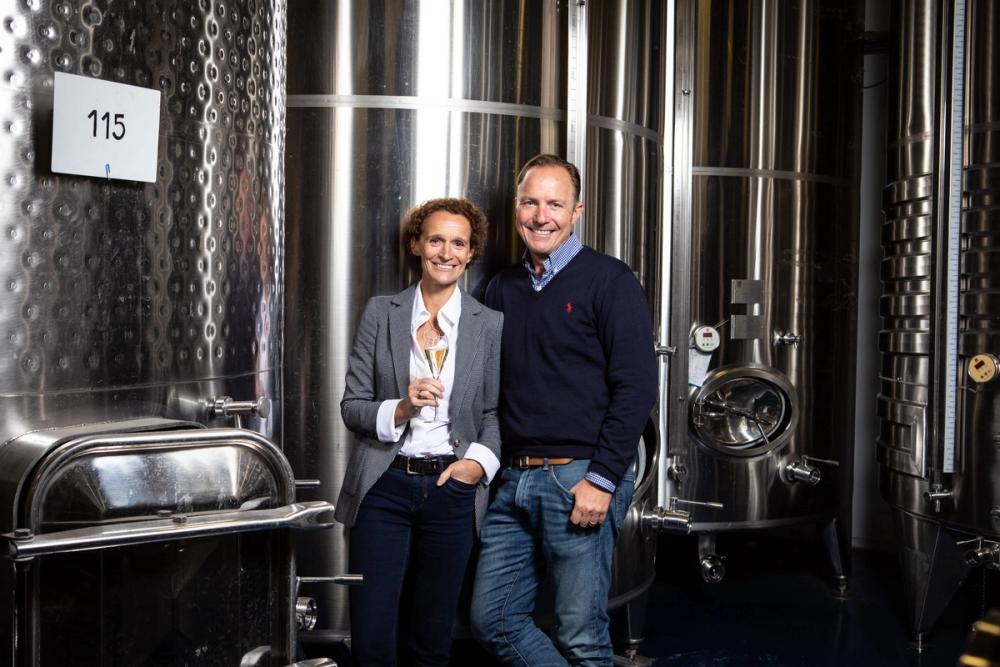
The Simpsons are keen and willing to share their experiences of making wine on both sides of the Channel. Picture Andrew Hayes-Watkins
We initially vowed never to make still wine in England - being too used to the 320 days of sunshine at Domaine de Sainte Rose - however given our experience making still wine in France, the fact that we have two very warm vineyard sites (relatively, for England), that are situated on excellent chalk soils and the fact that we have planted some Burgundian still wine clones, we had all the raw materials at our disposal so couldn’t resist trying.
It is already acknowledged that the terroir of the Chalk Downs is not just similar, but identical to both Champagne and Burgundy, being part of the same Parisian basin geology. You know all the arguments that support the UK's ability to create sparkling wines that challenge Champagne, but for the same reason, the same applies to still wines made from Chardonnay, Pinot Noir and even Pinot Meunier.
We believe UK still wines have the potential to challenge wines from several areas of Burgundy because they are grown on identical terroir and therefore have the potential to display the same minerality, elegance and ageing potential. Our success in several international competitions, including when our Roman Road Chardonnay 2018 was named one of the Top 50 Best in Show wines in the Decanter World Wine Awards, has only reinforced this belief.
Can still wines help open up English wine to more people?
We think still wines definitely open English wine to more people, both at home and in export markets. For example, Simpsons has four wines in the top 10 performing wines in Norway currently and three of them are stills! Diversification into still wine is also important, given that UK vineyard plantations continue to increase, so that there are more channels for that future uplift in UK wine production. And economically, still wines are generally slightly less expensive than Method Traditional sparkling wines, so more accessible to those with a smaller wine budget.
What do you see as the big opportunities still for Simpsons?
We are excited about the opportunities for export and have launched our wines in the US, South Korea, Lithuania and Iceland this year, in addition to our previously existing markets. These markets, particularly the USA, require significant investment and servicing, so this is a particularly big opportunity for us.
We are also excited by the opportunity to develop wine tourism, given the demand for our experiences. This has been enhanced by the development of the Wine Garden of England, a dynamic group of nine Kent producers focussed on tourism collaboration. We have more and more drop-in visitors, coming past to taste or buy, so we are currently considering when and how to develop a permanent cellar door presence in order to best look after these interested visitors.
What are the biggest challenges?
The biggest challenge is undoubtedly rising costs within a cost of living crisis, which makes any price rises particularly difficult. Everything from the agency staff we need in the vineyard at key times, to bottling dry goods, to freight and utilities have gone up in price.As an industry, we need to protect our premium price point in order to be able to cover these increased costs, while still providing top quality products to our customer.
* You can find out more about both properties here at Domaine Ste Rose in the Languedoc and at Simpsons Wine Estate in Kent.
